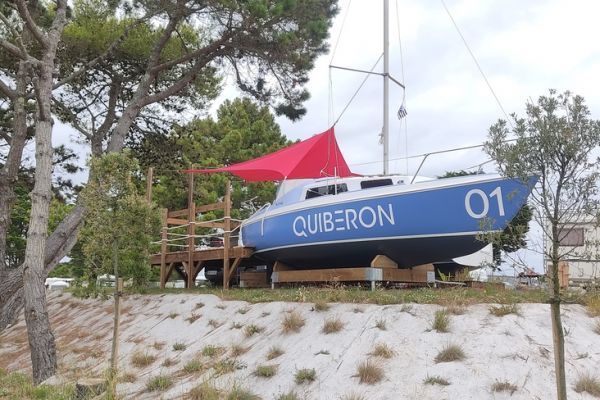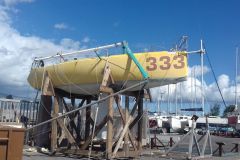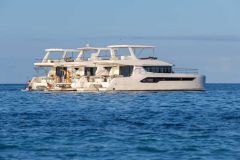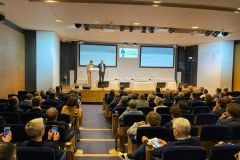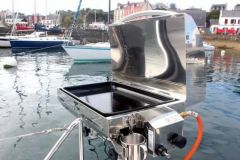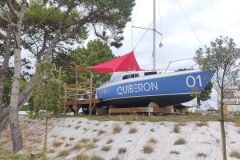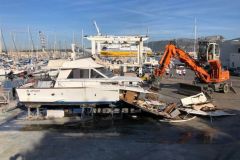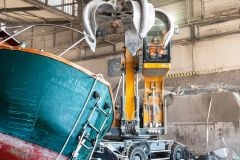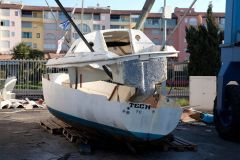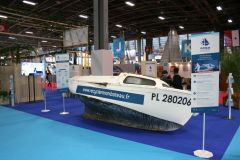Resumption in late 2021
The Bathô boatyard was founded in 2017 by Romain Grenon and Didier Toqué. On their premises in Rezé, they transform old, unused boats into unusual homes. With Covid running out of steam, they passed the torch to three new owners: the SOS association group, which works in the social inclusion economy and social project management; Bordeaux's Darwin Camp, a third-party place for the circular economy; and the Vannes-based communications company Profil Grand Large, owned by former skipper Damien Grimont.
Increased production and new products
Thibault Saint-Olive, a naval architect by training, is director and workshop manager of the up-cycling company. Previously, he worked for 4 years in Bangladesh, creating "useful" boats for fishing, schools, etc., and at the Amel shipyard, where he worked on the joinery of the Amel 50 and the production launch of the Amel 60. He explains: "When we took over at the end of 2021, the yard had been in existence for 4 years and had built 19 boats. Since then, we have transformed more than a dozen boats and developed new products, half-boats transformed into picnic areas, sanitary points, book boxes... Our ambition is to increase the number of boats to around fifty by 2025-2026, with a change of premises. We're working on projects for a circular economy village with the SOS group, which has taken over an unusual tourist habitat in the south. There are 26 boats to be installed by 2027, with the first ten or so starting up next year. We're also working with the town of Quiberon and its municipal campsite to integrate an energy self-sufficient seasonal boating village. There's a lot to do in the development program."
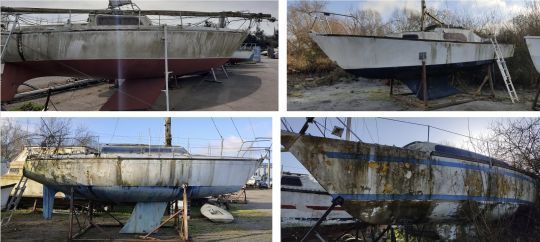
500 hours of work to transform a boat
The yard works mainly on a BtoB basis, even though its manager is well aware of the economic obstacles inherent in refitting a boat: "A boat costs between 26,000 and 28,000 euros, plus transport and installation costs. A campsite will pay for it in four years, whereas a mobile home with a wider range of use, because it's better insulated, pays for itself in two years. Despite the rationalization of production, I can't sell anything for less. It takes 500 hours of work per boat, plus the cost of materials. It's more complicated to renovate a boat to give it a second life than to install a pre-produced mobile home. The idea is to sell one or two boats to campsites, in addition to what they already have. It's not the most economical product, but we're extending the life of these old ladies by 10 or 15 years, until we know how to recycle them better, especially composite."
Affiliation with APER and collaboration with Affaires Maritimes
At the end of September 2022, Bathô signed an official affiliation partnership with APER to work on the "boat" waste recovery circuit." Thibault explains: "I'm not a waste sorting center, I valorize through transformation." The company is also in contact with the Ministry of the Sea and Maritime Affairs to find a status for these converted boats, which, although out of the water, are still registered.
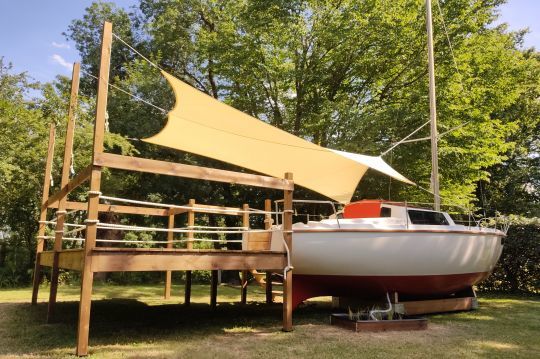
Streamlining production
For the year 2023, Thibault Saint-Olive is looking to streamline production on a few boat models. Through a telephone discussion with APER, he indicates the models he needs and contacts the owners. He works mainly on pre-'80s models, which are then depolluted, deodorized and stripped of their engines and batteries. He explains: "I sort the materials I buy back, the offcuts from composites, the wood... I work like a sorting center without carrying out the weighing and analytical data, but by establishing broad lines of good practice to formalize the processing chain at scale."
Each recovered boat is then transformed and renovated before being sold to tourism professionals and a few private individuals who find a new life for them: meeting room, sanitary point, houseboat...

